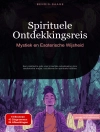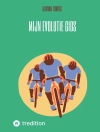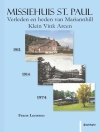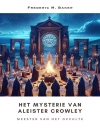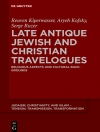In ‘The Mysteries of Free Masonry, ‘ William Morgan delves into the enigmatic world of Freemasonry during the early 19th century, employing a straightforward yet compelling narrative style. The book offers a critical examination of the rituals, symbols, and philosophical underpinnings associated with Masonic practices, positioning itself within a broader discourse on secret societies and societal ethics of the time. Morgan’s work is not merely an exposé; it reflects the tension between Enlightenment ideals and the mysterious allure of esoteric traditions, making it a significant text for understanding the cultural landscape of the period. William Morgan, an American stonemason, became profoundly intrigued by the secrecy surrounding Masonic practices after becoming a member himself. His personal experiences and disillusionments prompted him to reveal what he believed were the concealed truths and contradictory doctrines of Freemasonry. Tragically, this quest for transparency culminated in his mysterious disappearance, adding a layer of intrigue and danger to his narrative, which continues to fascinate scholars and laypeople alike. This book is an essential read for anyone interested in the intersections of secrecy, power, and philosophy in early American history. Morgan’s revelations challenge readers to consider the role of secrecy in shaping societal morals and underscores the enduring legacy of Freemasonry in American culture.
عن المؤلف
William Morgan (1774–1826?) was a figure whose controversial and mysterious actions significantly impacted the views on Freemasonry in the early 19th century and led to the substantial anti-Masonic movement in the United States. Born in Culpeper, Virginia, Morgan claimed to have served as a captain during the War of 1812, but his military service has been questioned. Later, after settling in Batavia, New York, he declared himself a Freemason. His declaration and ensuing actions led to conflict with his local Masonic lodge. Morgan is best known for his intention to publish ‘The Mysteries of Free Masonry, ‘ a book purporting to reveal the secret rituals of the Freemasons. In 1826, Morgan disappeared under mysterious circumstances, leading to speculations of abduction and murder by Masons, though his fate was never conclusively determined. His intended publication set off a public outcry against secret societies and fueled Anti-Masonic sentiments that had political and social ramifications well into the century. Though arguably not a prolific author or renowned literary figure, Morgan’s intended exposé and the response to his disappearance significantly affected public discourse regarding secret societies and personal liberty in his time.



